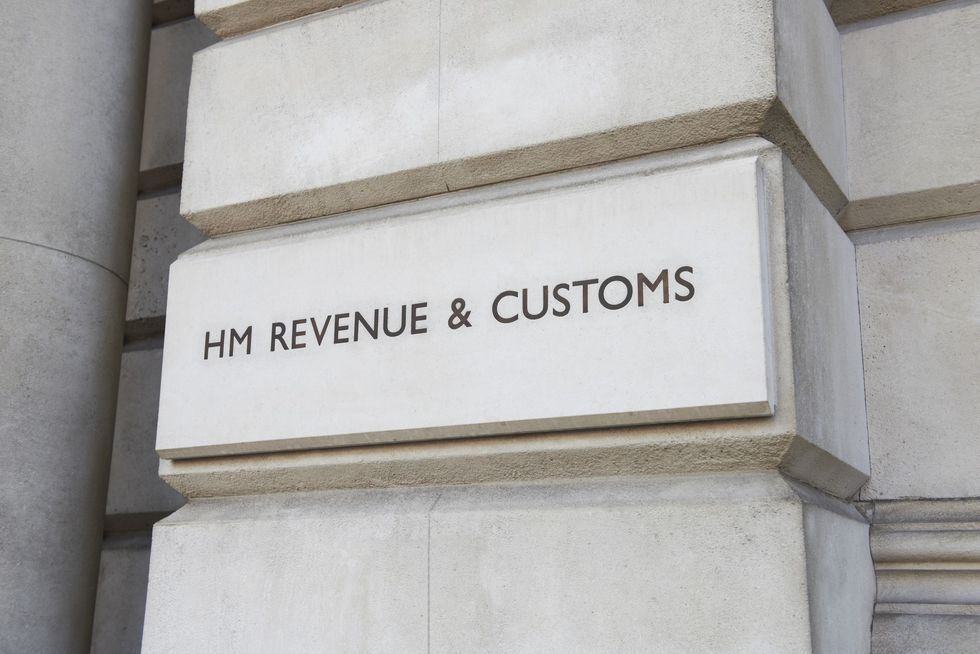Inheritance tax: Five ways to beat the death tax as the HMRC rakes in a record-breaking £7.5bn
HMRC took a record-breaking £7.5 billion in inheritance tax (IHT) last tax year
HMRC took a record-breaking £7.5 billion in inheritance tax (IHT) last tax year
Don't Miss
Most Read
Trending on GB News
There are five things individuals can do to maximise what they pass on to their loved ones.
With inheritance tax a possible target for the chancellor at the Budget in October, Britons are urged to consider different measures to protect their wealth.
HM Revenue and Customs (HMRC) took a record-breaking £7.5 billion in inheritance tax (IHT) last tax year. For the previous quarter, April to June 2024, the taxman has already banked a cool £2.1billion.
Charlene Young, pensions and saving expert at AJ Bell explained seven things people can do to make the process of transferring wealth easier.
She said: “Whilst the death tax is dubbed Britain’s most hated tax, only around 1 in 20 estates pay it. But those numbers are rising, along with the amount of money HMRC is raking in each year.
“Everyone can pass on up to £325,000 before IHT applies thanks to the nil rate band. An additional £175,000 residence nil rate band is available where homeowners leave a property to their direct descendants.
 Britons are warned they must pay inheritance tax (IHT) by the end of the sixth month after the person diedGETTY
Britons are warned they must pay inheritance tax (IHT) by the end of the sixth month after the person diedGETTY“Here’s what investors should do today to ensure they can maximise the value of the estate they leave for their loved ones and keep it out of the taxman’s clutches.”
1. Make a will
Without a will, an individuals estate will fall under the rules of intestacy, which could mean a higher inheritance tax bill, and in the absence of any surviving relatives, there estate could even pass to the Crown.
To work out a rough estimate of how much one's estate is worth, they are encouraged to list of their assets – this includes bank accounts, investments, ISAs and property as well as any debts and liabilities that could be deducted.
2. Make the most of spousal transfers
Britons can gift or leave things to their spouse or civil partner inheritance tax free.
Due to the residence nil rate band rules , spouses can leave their direct descendants up to £1 million without any IHT falling due.
It should be noted that this exemption doesn’t apply to gifts between unmarried partners, even if they have lived together for many years.
3. Use annual exemptions and allowances
Young explained the ‘annual exemption’ lets people give away a total of £3,000 each year to one person or split between several others. Unused exemption can be carried forward once to the next tax year.
Britons can also make unlimited small gifts of up to £250 per person, if they haven’t used another allowance to make a gift to the same person.
There are also wedding gift allowances for tax-free gifts to someone getting married or entering a civil partnership. These are up to £5,000 for a child, £2,500 to a grandchild or great-grandchild or £1,000 to anyone else. The wedding gift allowance can be combined with other allowances.
4. Retiring? Think about drawing from non-pension assets first
Young said: “The primary purpose of a pension is to save for retirement, but they can also be used to pass on money through the generations in a very tax-efficient way. Pensions are usually free from IHT as they do not form part of your estate unlike other investment accounts such as ISAs.
“If you draw on non-pension income and capital first, you are reducing the value of your estate without reducing your pension pot. Pensions can usually be passed on should you die before age 75 free of income tax (as well as IHT).
"On death after you reach 75, anything left to your beneficiaries is taxable as income when they draw it themselves.
"At this point you could consider using your pension to provide you with a regular ‘excess’ income (above your normal spending) so that you can use it to make regular gifts from income.”
5. Leave money to charity
Britons can make donations to UK registered charities are free from IHT.
However, if the gift is worth 10 per cent of the estate or more, then their overall rate of IHT will reduce from 40 per cent to 36 per cent.
Young added: “If you are considering making substantial gifts in your will, you should instruct a solicitor to advise how best to achieve this."







